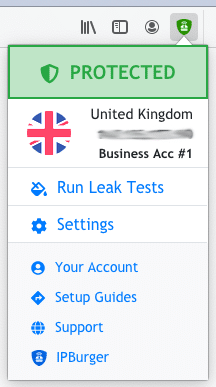Can’t decide between data center or residential proxies?
The quick answer
If there’s wiggle room in your budget, then go with residential proxies.
However, there’s still a place for data center proxies too.
This guide will clearly define each type of proxy, their strengths and weaknesses, and the best ways to use them.
The chart answer
| Qualities | Data Center Proxies | Residential Proxies |
| Reliability (Trust) | Low | High |
| Connection Stability | High | Medium |
| Price | Low | Medium-High |
| Locations | Low | Very High |
| Anonymity | Medium | High |
| Anti-crawler Immunity | Prone to detection | Immune to detection |
| Ban Rate | Very high | Very Low |
| Versatility | Medium | Very High |
| Rotation | Mostly Manual | Automatic or Sticky |
| Speed | Very fast | Medium-High |
| Exclusivity | Shared or Private | Mostly Shared |
That should give you a good idea, but let’s expand on it a little more.
The expanded answer
Data center and residential proxies mask your IP address with their own to make it look like you’re accessing the web from a different location. It may sound simple, but this allows you to bypass geo-blocks, disarm anti-crawling software, bend the rules of social networking accounts, and get past bans or suspensions on eCommerce sites.

What are data center proxies?
Picture a big warehouse full of computer stacks, lights blinking, the smell of internet in the air…
That’s where data center proxies live. Not out in the real world, but on cloud servers, virtual private servers, and the like. Their IP addresses are bought in bulk from corporations like Digital Ocean or Amazon AWS.
They’re meant to store data (hence the name) – but the internet often has bigger plans for them. Some of those plans include illegal or prohibited activities.
The thing is – websites can easily identify data center proxies.
So what’s the big deal?
Well, some of those websites have a ‘shoot-first-ask-questions-later’ attitude towards anyone using data center proxies.
And ban them with barrels smoking.
How do data center proxies work?
In most cases, you receive a list of IP addresses to plug into a browser extension. Once active, your web traffic routes to the data center proxy, inherits it’s IP address, and continues to the web. That way, it looks like your web activity is coming from the proxy.
There’s two general types of data center proxies:
Shared
Shared means that you share the proxy with other users. As you can imagine, there’s higher chance they get blacklisted and tend to be slower. The tradeoff is they cost less – so that’s nice.
Private
You get this one all to yourself. More expensive, but no one else will ever use the proxy but you. Best to get these from an honest dealer though, because they may have a bad history and just not work, ever.
There’s also a virgin proxies, or more accurately:
Fresh Proxies
Fresh proxies are private data center proxies held for at least six months to ensure they’re clean and aren’t on any naughty lists. Perfect for managing multiple accounts.
Strengths
- Fast – They’re fueled by powerful servers and can offer speeds of up to 10 GB per second.
- Predictable – Data centers don’t sleep, so you can expect very little downtime, if any.
- Cheap – You can buy a private data center proxy for as little as $1 and shared ones for fractions of that.
- Private – You’re can get private proxies that haven’t be abused by anyone else.
- Unlimited traffic – In most cases, you only have to pay for the IP address.
Weaknesses
- High ban risk – Data center IP addresses are issued in subnets. So when one IP address is banned, there’s a good chance all 256 in the group will also be banned.
- Low trust – Websites can easily detect data center IP addresses and will keep a tight watch on them. Sometimes they won’t even give you that courtesy, and ban you before you step through the door.
- Not user-friendly – You’ll have to procure the IP addresses and plug them into your browser. Then if they do work, you have to manually juggle them around to web scrape, sneaker bot, change locations and all that jazz.
- Few locations – When’s the last time you even saw a data center? There’s aren’t very many – less than 3000 in the US – which limits where you can browse from.
The best ways to use data center proxies
- Web scraping – If you know how to work around anti-crawler protection and have experience with manual proxy rotation, you can benefit from cheaper prices and faster speeds. However, it’s not as efficient as residential proxies.
- Sneaker bots – The only reason I put this here is for speed and cost. It’s cheap so you can fail more at a discounted price, and you may get a shoelace-wide jump on the competition.
- Managing accounts – Whether you create numerous profiles for a social media empire or outmaneuver eCommerce restrictions, fresh proxies are best to ensure multiple accounts live out long lives.
- Gaming – High speed, unlimited bandwidth. Need I say more?

What are residential proxies?
Residential proxies have an official residential IP address. It’s official because an ISP has registered the IP address to a real person. For this reason, residential proxies draw no undue attention from website security.
How do residential proxies work?
A provider’s proxy server connects you to a proxy in their network that suits your criteria, then your traffic routes through it to the web. You’ll access the web from wherever that proxy is from, with it’s IP address.
Rotating residential proxies
It just means that you’ll switch from one residential proxy to another. Each request you make can appear to come from a different user, which makes it hard to keep tabs on your activity. You can also set to rotate every few minutes, or whenever you want to.
However, 30 minutes is about the max time you can spend with rotating proxies – there’s a name for that:
Sticky Sessions
It’s useful to hold onto one residential IP address for a little while. Checking out of online stores or creating new accounts is made possible with sticky sessions.
Strengths
- Highly trusted – Websites can’t tell residential proxies and real users apart. This allows you to mask your identity without raising any eyebrows.
- Many locations – Well established proxy providers have access to millions of residential proxy pools all over the world. Not only can you access the internet from anywhere, but you can also rotate within local networks.
- User-friendly – You don’t have to do much. Plug into your provider’s proxy server, select your location, set your rotation frequency, and that’s it. Web scraping becomes web chillin’ when rotation’s on auto-pilot.
- Ban-free – As long as you don’t go nuts, residential proxies prevent account bans and suspensions if you want to create multiple accounts, scrape web data, or cop sneakers with a bot.
Weaknesses
- Pricey – It costs way more than a dollar. And it should. It takes resources to make it all happen safe and effectively.
- Slower – These don’t have data center horsepower – yet. You’re going to rely on the proxy owner’s internet speed. However, if their speed doesn’t blow your socks off, you can always rotate.
- Unreliable connection – Even though sticky sessions are a thing, and you control rotation frequency – what if the proxy owner drops their phone in a toilet – or drops connection in another, more likely way?
You rotate on. It’s not the end of the world, except for homie who’s phone just got traumatized.
The best ways to use residential proxies
- Creating multiple stealth accounts – You need a residential IP address each time you create a new account. Data center IPs won’t do – platforms like eBay and Amazon are on to them. But after you create a new account, get yourself a fresh proxy to manage it long term.
- Sneaker botting – In this highly competitive game of copping sneakers, you want speed and authenticity. Residential proxies are authentic, but usually not as fast as data center proxies. So the pros use a mix of both.
- Web scraping – Hands down the easiest way to scrape the web and collect data. With many more locations and the ability to rotate IP addresses after each request, they offer the most vast and comprehensive results.
- Bypass geo-blocks – You can access the web from anywhere in the world – as a real user. It is however unnecessarily expensive for some purposes like streaming Netflix or Twitch.
Now that you’re curiosity is satisfied…
If you happen to be in the market for fresh or residential proxies, now’s a good time to explore.



